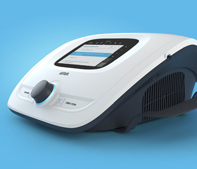
Description: The carbamazepine test is used to measure and monitor the amount of carbamazepine in the blood to determine whether the level of drug is within the therapeutic range. Carbamazepine is primarily used to treat certain seizure disorders (also called epilepsy) but is also prescribed to stabilize the moods of people with bipolar disease, to ease alcohol withdrawal, and to help alleviate some types of nerve pain. Carbamazepine tests are ordered frequently at first, then at regular intervals and as needed to ensure that therapeutic blood concentrations are maintained.
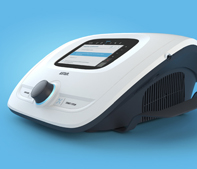
Description: Testosterone testing is used to evaluate androgen excess or deficiency related to gonadal function, adrenal function, or tumor activity. Testosterone levels may be helpful in men for the diagnosis of hypogonadism, hypopituitarism, Klinefelter syndrome, and impotence (low values). Testosterone levels may be requested in women to investigate the cause of hirsutism, anovulation, amenorrhea, virilization, masculinizing tumors of the ovary, tumors of the adrenal cortices, and congenital adrenal hyperplasia (high values). Testosterone levels in children may be helpful to investigate issues related to puberty and development.
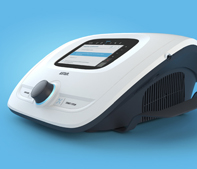
Description: This blood test measures levels of testosterone, a human sex hormone, for overproduction or deficiency. The Free (Direct) Testosterone test measures the amount of free testosterone in the blood (which includes albumin-bound testosterone since it can easily convert to free testosterone). Both men and women can have health problems because of low or high levels of testosterone. Women with high levels of testosterone may have polycystic ovary syndrome (PCOS). This condition marked by infertility, lack of menstruation, acne, obesity, blood sugar problems, and extra hair growth, especially on the face.
Men with low levels of testosterone (hypogonadism) can lose their sex drive, have low energy, suffer bone loss, or become infertile. Testosterone levels in men drop as they age, but this not considered to be hypogonadism.
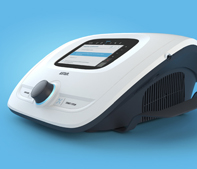
Description: This test measures the level of theophylline in your blood. Theophylline is a chemical similar to caffeine. It's sometimes used as a medicine to treat lung conditions such as asthma, chronic obstructive pulmonary disease, and bronchiolitis. Sometimes it's prescribed to babies, especially premature infants, to help their breathing and lung function.
Theophylline reduces inflammation or irritation in lungs and airways, relaxes smooth muscles in the airways and digestive system, and stimulates the central nervous system. But theophylline can be harmful in high doses or if the theophylline level in your blood is too high, so your healthcare provider may want to test your level of theophylline.
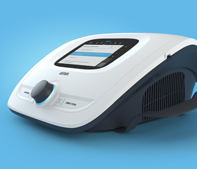
Description: The thyroglobulin test is primarily used as a tumor marker to evaluate the effectiveness of treatment for thyroid cancer and to monitor for recurrence. Not every thyroid cancer will produce thyroglobulin, but the most common types, the well-differentiated papillary and follicular thyroid cancers, frequently do, resulting in increased levels of thyroglobulin in the blood.
Thyroglobulin testing may be used, along with a TSH test, prior to thyroid cancer treatment to determine whether the cancer is producing thyroglobulin. If it is, then the test can be ordered at intervals after treatment to monitor for cancer recurrence. Thyroglobulin testing is also occasionally ordered to help determine the cause of hyperthyroidism and to monitor the effectiveness of treatment for conditions such as Graves disease.

Description: The determination of TPO antibody levels is the most sensitive test for detecting autoimmune thyroid disease (eg, Hashimoto thyroiditis, idiopathic myxedema, and Graves disease) and detectable concentrations of anti-TPO antibodies are observed in most patients with these disorders. The highest TPO antibody levels are observed in patients suffering from Hashimoto thyroiditis. Thyroperoxidase (TPO) is an enzyme involved in thyroid hormone synthesis. Disorders of the thyroid gland are frequently caused by autoimmune mechanisms with the production of autoantibodies. Anti-TPO antibodies activate complement and are thought to be significantly involved in thyroid dysfunction and the pathogenesis of hypothyroidism.
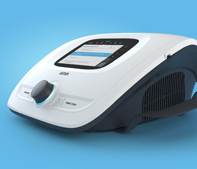
Description: Blood tests for triglycerides are usually part of a lipid profile that is used to help identify an individual's risk of developing heart disease and to help make decisions about what treatment may be needed if there is borderline or high risk. As part of a lipid profile, it may be used to monitor people who have risk factors for heart disease, those who have had a heart attack, or those who are being treated for high lipid and/or high triglyceride levels.
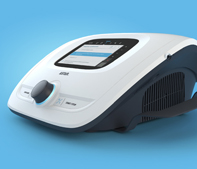
Description: A troponin test measures the levels troponin T or troponin I proteins in the blood. These proteins are released when the heart muscle has been damaged, such as occurs with a heart attack. The more damage there is to the heart, the greater the amount of troponin T and I there will be in the blood. Troponin tests are primarily ordered to help diagnose a heart attack and rule out other conditions with similar signs and symptoms.
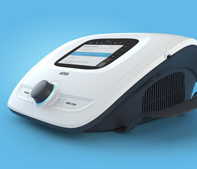
Description: This test measures your hormone levels that regulate metabolism to make sure your thyroid is working correctly.
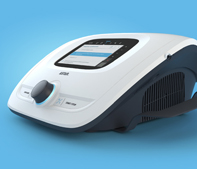
Description: Uric acid measurements are useful in the diagnosis and treatment of gout, renal failure, and a variety of other disorders including leukemia, psoriasis, starvation, and other wasting conditions. Patients receiving cytotoxic drugs may be monitored with uric acid measurements. Only a minority of individuals with hyperuricemia develop gout. An increased uric acid level does not necessarily translate to a diagnosis of gout. The therapeutic goal for uric acid-lowering therapy is to promote crystal dissolution and prevent crystal formation. This is achieved by maintaining a uric acid level <6 mg/dL.